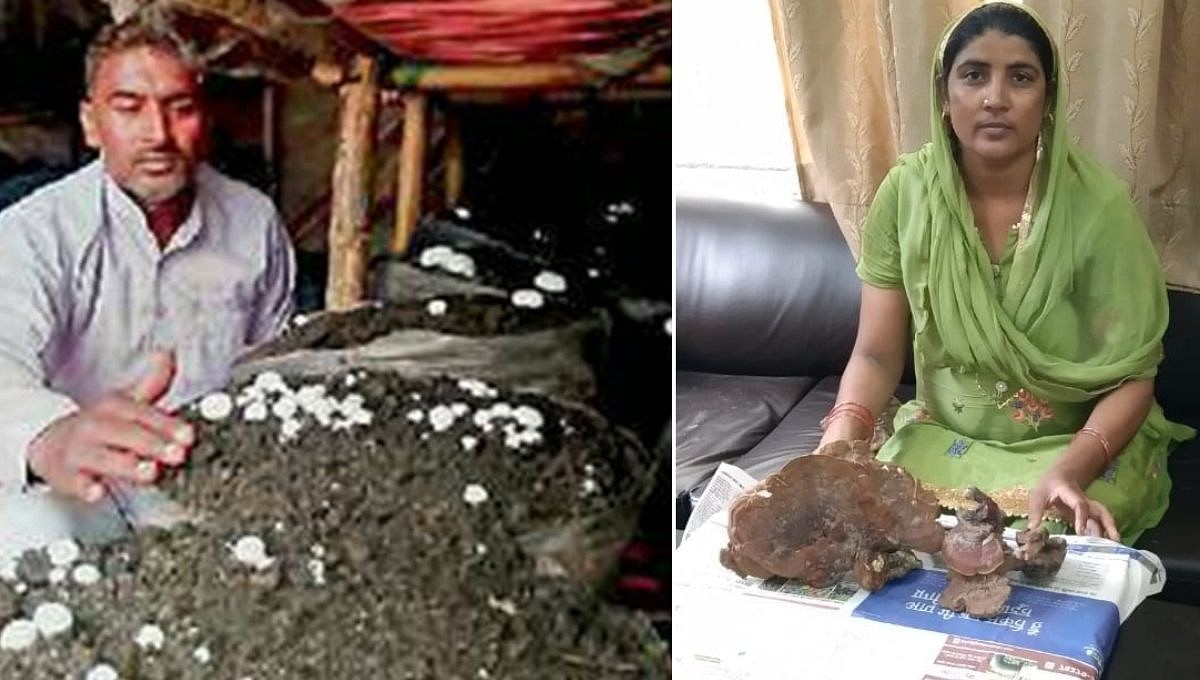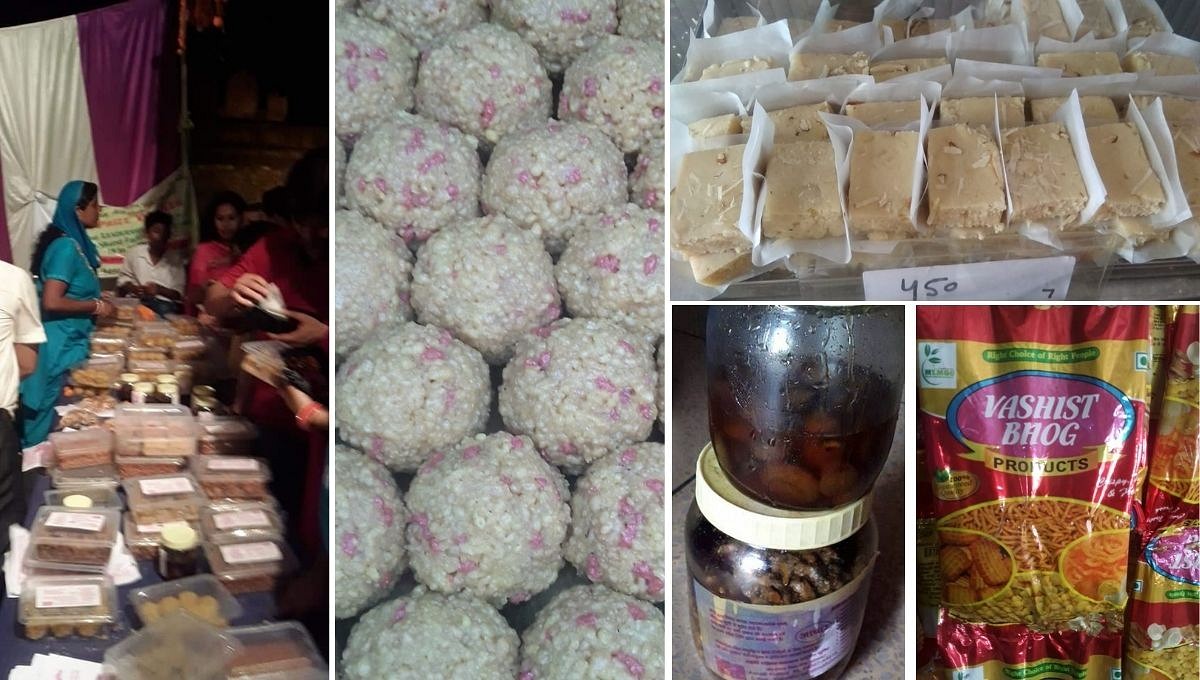Laddus are diverse, and you can use any ingredient to make them — be it boondi, besan, mawa, coconut and even chocolate. But have you ever tried, or heard of, mushroom laddus?
If not, then Haryana resident Ashok Kumar Vashist, who describes himself as a progressive farmer, might have the perfect recipe for you. The Jind-based farmer makes and sells laddus, among many other innovative food items, made from the fungi.
Having studied only up to Class 10, Ashok has spent the last couple of years cultivating mushrooms. Once the cultivation picked up, he decided to expand and started own business by processing the mushrooms.
“Up until 2007, I was carrying out traditional farming on my family plot of five acres. But I always wanted to experiment, and that was when I heard about mushroom farming,” he tells The Better India.
Before taking the plunge, Ashok says he did a fair bit of study and research. He visited the Mushroom Research Center in Murthal and spent time with the researchers there. “I also took training under Dr Ajay Singh Yadav, the chief scientist at the centre,” he says.
Through trial and error

Ashok started with mushroom cultivation in his old home. He says, “The house was completely dilapidated, and was not being used for anything. In fact, it was being prepped to be broken down. So I decided to make use of it.”
“I started by growing oyster mushrooms, popularly known as dhingri mushrooms in India,” he adds. Given that this was the first time he was doing this, success did not come immediately, notes.
“Since mushrooms can be cultivated with minimal initial investment, the failures did not pinch too much,” he says. There were several rounds of trial and error but eventually, Ashok started understanding the nuances of cultivating mushrooms.
After he completed the course, he ensured he stayed in touch with the centre and was constantly seeking support from them. “I also reached out to the researchers at Krishi Vigyan Kendra and agricultural universities to stay updated about various developments in the field of mushroom cultivation,” he adds.
He was ably supported by his wife Sunita, who also underwent training before she started helping out. “As each batch of mushrooms turned out better than the last, my confidence began increasing as well,” Ashok says.
Once the duo was 100 per cent confident of the quality of mushrooms, they started looking for ways to market it. “While mushrooms are rich in nutrients, not many people in our own circle cooked with it. In fact, many around us were of the belief that mushrooms were a non-vegetarian food item,” he shares. Wanting to take this nutrition-packed food to as many people as he could, Ashok also enrolled in a course on mushroom processing.
‘It started as an experiment’

The duo began looking into new ways to sell their produce, which led to various experiments at home. Ashok says, “My wife would spend hours trying to think of ways to incorporate mushrooms into our daily diet. She started making pickles, jams, and various kinds of mushroom curry,” he says. With each new dish, Ashok would take small batches for family and friends and have them give him their honest feedback. Every piece of feedback they received was incorporated into the next batch Sunita made.
Slowly, demand for these products started increasing, and people were willing to pay a price to buy them. “People would have eaten mushroom in a curry or even as a pickle, but we started using it to make various kinds of sweets, which included laddus, barfis and even jalebis,” he adds.
So the duo launched Maharishi Vashist Mushrooms to sell their products and received an FSSAI certificate. Ashok adds with much pride that he hasn’t met anyone else in Haryana who makes mushroom laddus or murabbas (chutney).
Today, the products are shipped to various other states, including Delhi, Rajasthan and Punjab. Ashok and Sunita were earning close to Rs 1 lakh pre-COVID, but the revenue dipped during the lockdown, he says.
Ashok and Sunita have also received several awards and state recognitions. In 2017, they bagged the first prize in the ‘Agri Leadership Summit’ held in Surajkund, and that same year, Sunita was honoured at the Krishi Mela organised by the Haryana Golden Utsav.
(Edited by Divya Sethu)
No comments:
Post a Comment